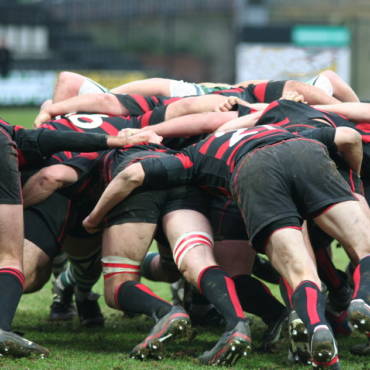Here’s a typical football Club scenario. Pick a club – any club – any code – it doesn’t matter.
The team loses a few games, has a couple of bad seasons and the decision is made to sack the head coach.
In fact, Legend AFL Coach David Parkin once said, “There are two types of head coaches. Ones who have been sacked and ones who will be sacked”.
So the club sacks the coach, goes through a search process, finds someone else to be head coach and prepares for the next season.
Next season the team loses a few games, has a bad season and surprise surprise – the Club starts looking for another head coach.
Some Clubs have recruited and sacked several coaches over the past ten years and have not had a change in their on field performance.
Many of these same Clubs have had the same Board, CEO and management team in place throughout that same ten years.
So what they are saying is, “we are doing everything right, we have all we need to win a title, we have a great culture and leadership – all we need is a great head coach and we will be back on track”.
Is it just me or is this a really silly way to run a business?
Head coaches in all codes are paid reasonably well but they do take much of the responsibility for the performance of the team on their shoulders. The potential rewards – both professionally and financially are great but so too are the risks and stresses.
However, whilst a quality head coach can potentially make significant improvements to a football team, they need strong support from all elements of the Club to be successful.
Imagine you have an old car. Worn shocks. Cracked and faded paint job. Broken gear box. Faulty steering. Flat and bald tyres. You decide to improve the performance of the car, so you buy a new engine.
And what happens – the engine itself runs really well – but the rest of the car can not provide any real support or performance advantages for the car.
So you rip the engine out, and put a bigger one in. More power. More grunt. Engine goes great – but the overall performance of the car does not improve.
So you rip out this engine too. And you import the biggest one you can find. Again, engine performance is excellent but the car does not perform any better.
Football Clubs can be like this. The world’s best head coach can not improve the performance of the team unless everyone and everything in the organisation is similarly committed to and professional about performance.
There are four key indicators that a Club is heading for problems:
- Numerous conflicting statements and reports in the media from different sources in and around the Club. Once the place starts leaking – disaster usually follows.
- An attitude of “that’s the way we do it here”. If the “way we do it here” is to lose for ten years, and yet the Club persists with doing it “their way” – sound the alarm bells.
- A Board heavy with players and coaches who were directly involved as players and coaches more than ten years ago. Human nature being what it is, these Board members will see themselves as the “custodians” of the culture and be very resistant to change and innovation.
- An environment where the Board and CEO are at loggerheads. Can’t function off field = poor results on field.
Ewen McKenzie– former head coach of the NSW Waratahs Rugby team was sacked mid season in 2008. He commented “I always believed that performance beat politics. You win – your job’s safe”.
Politics kills more head coaches than heart disease, cancer and accidents combined. A professional football environment which is driven by and dictated to by political agendas – particularly by minority groups with strong political support, is doomed.
So what’s the answer?
- If you decide to hire a new head coach, clearly identify what it is you need at this point in time of the Club’s evolution.
- Once the head coach is appointed, give him 100% complete and total, unconditional public support. Argue as much as you like in private, in the Boardroom and in the CEO’s office – but be united in public.
- Assess the coach’s performance regularlyagainst a set of criteria / KPIs or similar measurement technique.
- Complete a comprehensive review of all elements of the Club’s business – Board, Management, Executive, Coaching, Sports Science, Sports Medicine, Analysis, Strength and Conditioning, Recruitment, Talent Development etc etc etc each year with an aim to ensure a performance environment which embraces continuous improvement and sustainable success.
Wayne Goldsmith


